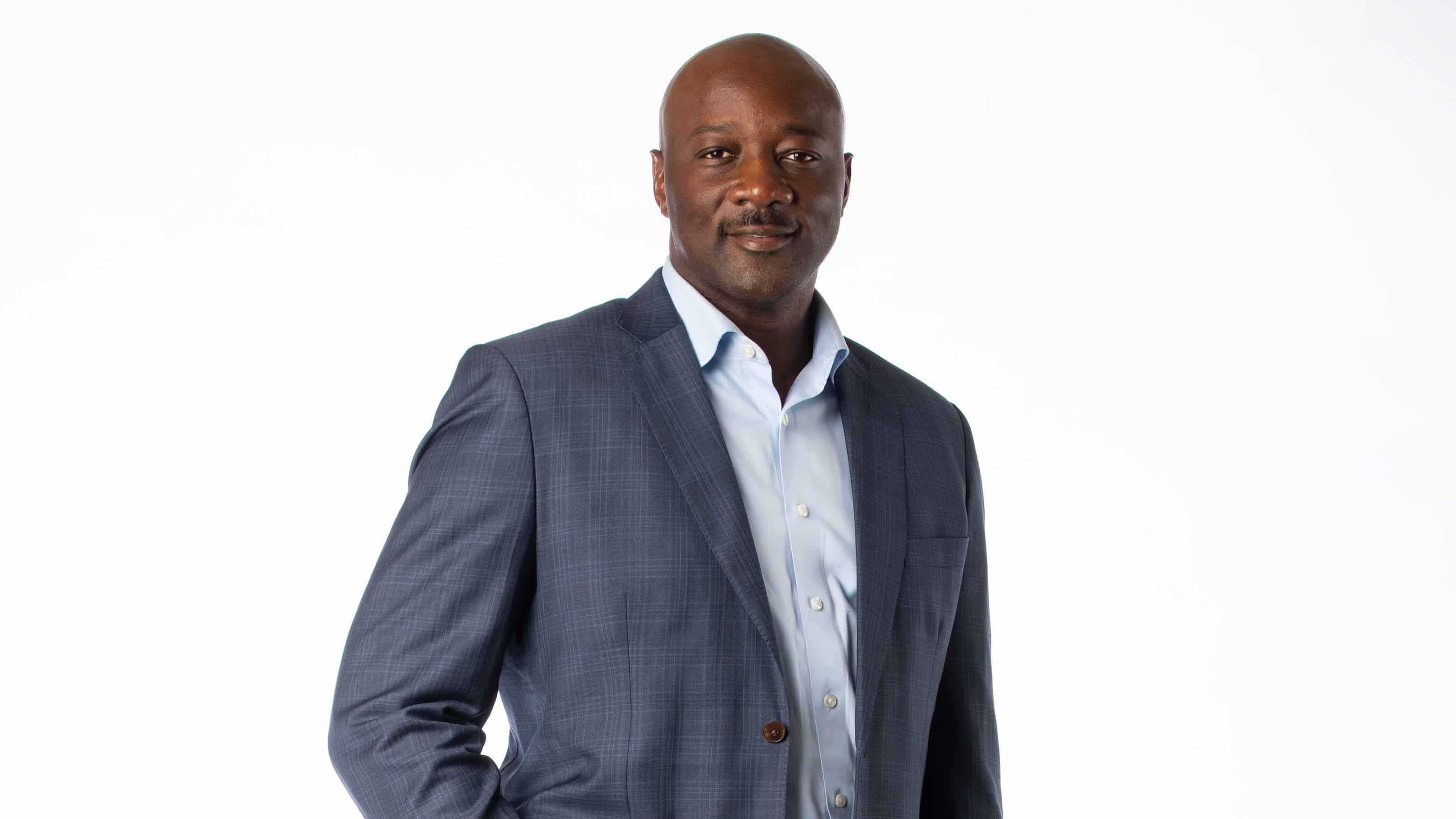HSA Investing When You're Over 65
Older savers should revisit the investment mix in their health savings account as their tolerance for risk falls and their health care spending rises.


Profit and prosper with the best of Kiplinger's advice on investing, taxes, retirement, personal finance and much more. Delivered daily. Enter your email in the box and click Sign Me Up.
You are now subscribed
Your newsletter sign-up was successful
Want to add more newsletters?

Delivered daily
Kiplinger Today
Profit and prosper with the best of Kiplinger's advice on investing, taxes, retirement, personal finance and much more delivered daily. Smart money moves start here.

Sent five days a week
Kiplinger A Step Ahead
Get practical help to make better financial decisions in your everyday life, from spending to savings on top deals.

Delivered daily
Kiplinger Closing Bell
Get today's biggest financial and investing headlines delivered to your inbox every day the U.S. stock market is open.

Sent twice a week
Kiplinger Adviser Intel
Financial pros across the country share best practices and fresh tactics to preserve and grow your wealth.

Delivered weekly
Kiplinger Tax Tips
Trim your federal and state tax bills with practical tax-planning and tax-cutting strategies.

Sent twice a week
Kiplinger Retirement Tips
Your twice-a-week guide to planning and enjoying a financially secure and richly rewarding retirement

Sent bimonthly.
Kiplinger Adviser Angle
Insights for advisers, wealth managers and other financial professionals.

Sent twice a week
Kiplinger Investing Weekly
Your twice-a-week roundup of promising stocks, funds, companies and industries you should consider, ones you should avoid, and why.

Sent weekly for six weeks
Kiplinger Invest for Retirement
Your step-by-step six-part series on how to invest for retirement, from devising a successful strategy to exactly which investments to choose.
Question: What are my investment options after age 65 with the remaining balance in my health savings account?
Answer: As with your retirement accounts, you’ll generally want to shift toward a less-aggressive portfolio as you age to match your risk tolerance. That means decreasing the percentage you hold in stocks and increasing your cash and bond holdings. If you’re likely to need to withdraw the money from the account soon, keep a portion of the funds in the HSA’s money market or checking account so it’s not affected by market fluctuations.
Fees and investing options vary from one HSA administrator to the next, but you’ll generally be able to select from a menu of mutual funds, exchange-traded funds, stocks and bonds. Many plans also offer target-date funds, which automatically adjust your portfolio to an increasingly conservative mix of investments over time. You can find HSA administrators and compare fees and investing options at HSAsearch.com.
From just $107.88 $24.99 for Kiplinger Personal Finance
Become a smarter, better informed investor. Subscribe from just $107.88 $24.99, plus get up to 4 Special Issues

Sign up for Kiplinger’s Free Newsletters
Profit and prosper with the best of expert advice on investing, taxes, retirement, personal finance and more - straight to your e-mail.
Profit and prosper with the best of expert advice - straight to your e-mail.
If you’re still working and not yet on Medicare, you may also be able to continue making pretax HSA contributions. To qualify, you must have a high-deductible health insurance policy (with a deductible of at least $1,350 for individual coverage or $2,700 for family coverage in 2019) and must have not enrolled in either Medicare Part A or Part B. Some people who are still working delay signing up for Medicare (even premium-free Part A) so they can make HSA contributions, particularly if their boss contributes some money to the account. (The average employer contribution to an HSA was $1,277 for individual coverage and $2,119 for family coverage in 2018, according to the Kaiser Family Foundation.)
As long as you continue to work and keep your employer coverage, you won’t pay a penalty for delaying Medicare enrollment. But if you sign up for Part A after your 65th birthday, Medicare coverage is retroactive for up to six months, and you could face penalties for contributing to an HSA during that time. To avoid the penalty, stop contributing to your HSA at least six months before enrolling in Medicare.
After you stop contributing to an HSA, you can still withdraw the money in the account tax-free for a wide range of out-of-pocket medical expenses and other eligible costs that aren’t covered by insurance, such as vision, hearing and dental care as well as co-pays for prescription drugs. The money can also be used to pay premiums for Medicare Part B and Part D or a Medicare Advantage plan (but not for medigap premiums). And you can take tax-free withdrawals to pay a portion of long-term-care insurance premiums based on your age (ranging from $420 if you’re 40 or younger to $5,270 if you’re 70 or older in 2019). After age 65, you can tap the account for nonmedical expenses without penalty, but you’ll have to pay income taxes on the amount you withdraw.
Profit and prosper with the best of Kiplinger's advice on investing, taxes, retirement, personal finance and much more. Delivered daily. Enter your email in the box and click Sign Me Up.

-
 Ask the Tax Editor: Federal Income Tax Deductions
Ask the Tax Editor: Federal Income Tax DeductionsAsk the Editor In this week's Ask the Editor Q&A, Joy Taylor answers questions on federal income tax deductions
-
 States With No-Fault Car Insurance Laws (and How No-Fault Car Insurance Works)
States With No-Fault Car Insurance Laws (and How No-Fault Car Insurance Works)A breakdown of the confusing rules around no-fault car insurance in every state where it exists.
-
 Why Picking a Retirement Age Feels Impossible (and How to Finally Decide)
Why Picking a Retirement Age Feels Impossible (and How to Finally Decide)Struggling with picking a date? Experts explain how to get out of your head and retire on your own terms.
-
 Money for Your Kids? Three Ways Trump's ‘Big Beautiful Bill’ Impacts Your Child's Finances
Money for Your Kids? Three Ways Trump's ‘Big Beautiful Bill’ Impacts Your Child's FinancesTax Tips The Trump tax bill could help your child with future education and homebuying costs. Here’s how.
-
 Key 2025 Tax Changes for Parents in Trump's Megabill
Key 2025 Tax Changes for Parents in Trump's MegabillTax Changes Are you a parent? The so-called ‘One Big Beautiful Bill’ (OBBB) impacts several key tax incentives that can affect your family this year and beyond.
-
 What Does Medicare Not Cover? Eight Things You Should Know
What Does Medicare Not Cover? Eight Things You Should KnowMedicare Part A and Part B leave gaps in your healthcare coverage. But Medicare Advantage has problems, too.
-
 QCD Limit, Rules and How to Lower Your 2026 Taxable Income
QCD Limit, Rules and How to Lower Your 2026 Taxable IncomeTax Breaks A QCD can reduce your tax bill in retirement while meeting charitable giving goals. Here’s how.
-
 How to Benefit From Rising Interest Rates
How to Benefit From Rising Interest RatesFinancial Planning Savers will get the best rates from top-yielding savings and money market deposit accounts at online banks.
-
 Donor-Advised Funds: The Gift That Keeps on Giving
Donor-Advised Funds: The Gift That Keeps on GivingFinancial Planning Expert guidance on how this charitable vehicle can make a difference.
-
 PODCAST: Tax Breaks for College Finance with Kalman Chany
PODCAST: Tax Breaks for College Finance with Kalman ChanyPaying for College Paying for (ever-pricier) college is a challenge that this consultant meets head on with highly specific guidance.
-
 Reading, Writing, and Personal Finance
Reading, Writing, and Personal FinanceRaising Money-Smart Kids A growing number of high schools are adding personal finance to their curriculum.